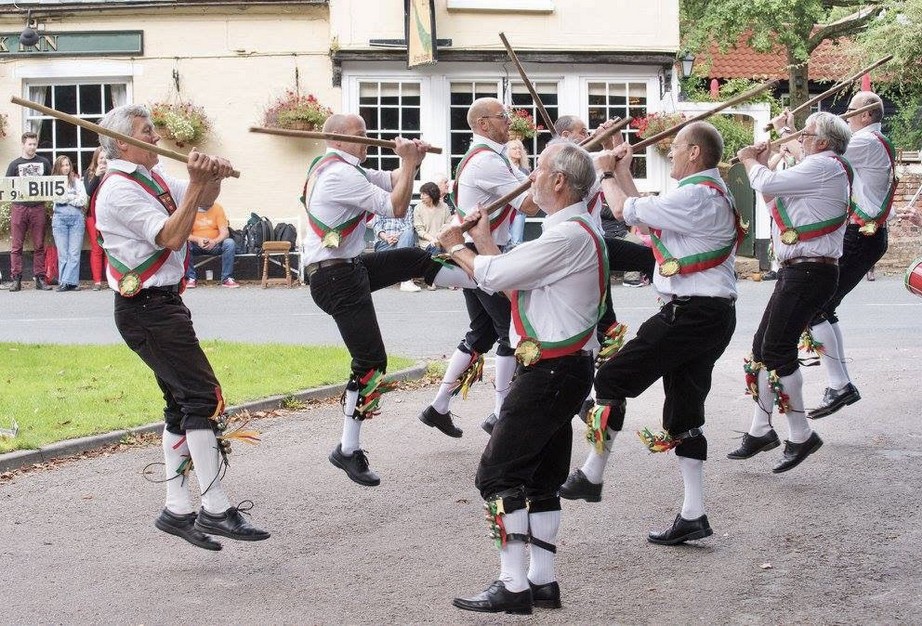About Morris dancing

Morris dancing or 'The Morris' is the name given to several forms English ritual dance of ancient origin. These were usually part of the celebration of a particular season or event by the community. Some special celebrations still occur, but many traditions have been lost over the years. Although the Morris is mostly performed for enjoyment nowadays, it remains a living part of our cultural heritage.
The form of dance most commonly seen in the southern part of England originates from the Cotswolds and this is the main part of the repertoire of Colchester Morris. You may from time to time see North West Morris danced in this area - the dancers wear clogs and the form of dance differs from Cotswold quite considerably. Border Morris is also danced by some of the local sides, and you will notice that the dancers achieve anonymity by camouflaging their faces. The dancing tends to be rougher and more boisterous than Cotswold morris, probably because of the anonymity they enjoy! The East Anglian tradition of Molly dancing can also be seen during the winter months.
Further information about Morris dancing can be found at www.themorrisring.org
The form of dance most commonly seen in the southern part of England originates from the Cotswolds and this is the main part of the repertoire of Colchester Morris. You may from time to time see North West Morris danced in this area - the dancers wear clogs and the form of dance differs from Cotswold quite considerably. Border Morris is also danced by some of the local sides, and you will notice that the dancers achieve anonymity by camouflaging their faces. The dancing tends to be rougher and more boisterous than Cotswold morris, probably because of the anonymity they enjoy! The East Anglian tradition of Molly dancing can also be seen during the winter months.
Further information about Morris dancing can be found at www.themorrisring.org
